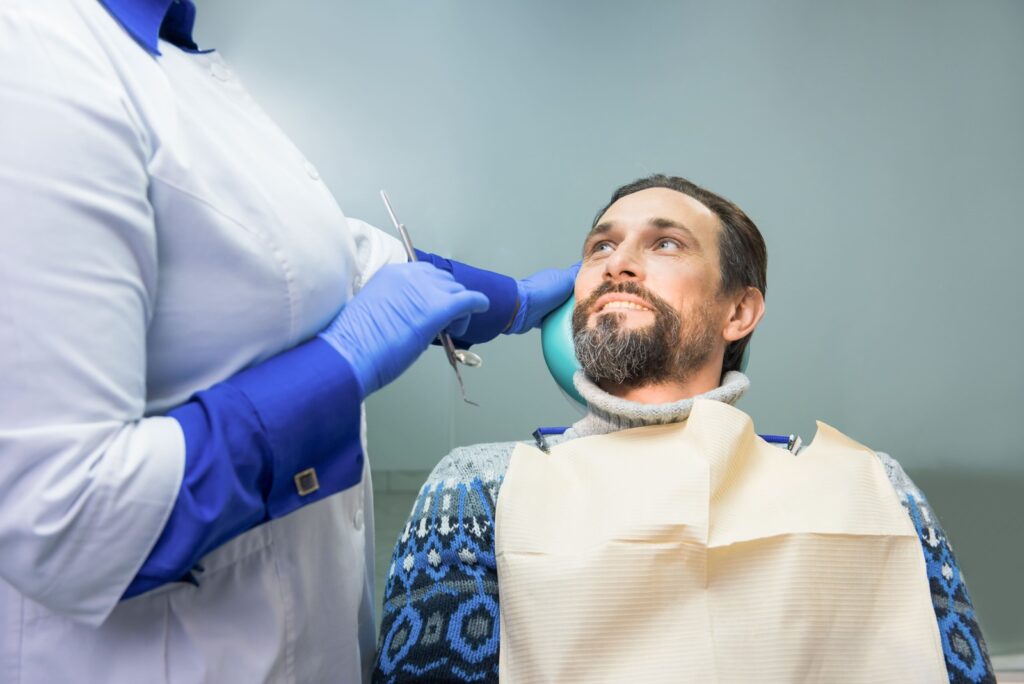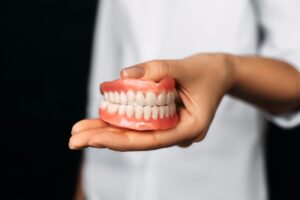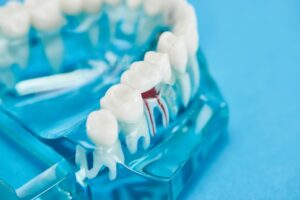Teeth whitening has surged in popularity as individuals strive for brighter, more confident smiles. Yet, what are the risks and benefits you should know before getting teeth whitening? This exploration delves into the safety considerations of teeth whitening.
The Process of Teeth Whitening
There are various methods available for teeth whitening, including professional bleaching performed by a dentist and over-the-counter products that can be used at home. These methods typically rely on the use of whitening agents, such as hydrogen peroxide or carbamide peroxide, to remove stains and discoloration from the teeth.
In-office treatments involve the application of higher concentrations of these whitening agents, which are activated with the use of special lights or lasers. On the other hand, at-home kits usually contain lower concentrations of whitening agents and require longer treatment periods.
Potential Risks of Teeth Whitening
While teeth whitening is generally safe when performed correctly, there are some potential risks that individuals should be aware of. One common side effect of teeth whitening is tooth sensitivity, which can cause discomfort or pain when consuming hot or cold foods and beverages. This sensitivity is usually temporary and can be managed with the use of desensitizing toothpaste or by opting for lower concentrations of whitening agents.
Gum irritation is another potential risk of teeth whitening. If the whitening agent comes into contact with the gums, it can cause inflammation and discomfort. Proper application techniques, such as using custom-made trays or applying a protective barrier on the gums, can help minimize the risk of gum irritation.
There is also a small risk of enamel damage if the whitening products are used improperly or in excessive amounts. Enamel, the protective outer layer of the teeth, can become weakened or eroded if the whitening agents are left on the teeth for too long or if they are used too frequently. It is important to follow the instructions provided by the dentist or product manufacturer to avoid enamel damage.
Individuals with existing allergies or sensitivities should also be cautious when considering teeth whitening. Some individuals may experience allergic reactions to the whitening agents or other ingredients used in the products. It is crucial to inform the dentist about any allergies before undergoing a whitening treatment to minimize the risk of an adverse reaction.
Finally, overuse and abuse of teeth whitening products can lead to severe tooth sensitivity, enamel erosion, and other dental problems. It is important to use these products in moderation and under professional guidance to ensure their safe and effective use.

Potential Benefits of Teeth Whitening
Despite the potential risks, teeth whitening can offer significant benefits in terms of improving one’s appearance and boosting self-confidence. A brighter and whiter smile can have a positive psychological impact on individuals, enhancing their self-esteem and improving their overall well-being.
Teeth whitening can also contribute to a more youthful and attractive appearance. Over time, teeth can become stained and discolored due to various factors, including aging, certain foods and drinks, and smoking. Teeth whitening treatments can reverse these effects, helping individuals achieve a more vibrant and youthful smile.
Choosing a Safe Teeth Whitening Option
When considering teeth whitening, it is important to choose a safe and reliable option. Here are some tips to help individuals make an informed decision:
First and foremost, it is crucial to consult with a dentist before deciding on a teeth whitening option. A professional consultation allows the dentist to assess the individual’s oral health and determine the most suitable whitening method. Personalized treatment plans and professional guidance can help ensure a safe and effective outcome.
When purchasing over-the-counter products, it is advisable to choose trusted brands that are approved by dental associations and have a good reputation. Reading reviews and conducting research can help individuals make informed choices and avoid potentially harmful products.
Following the instructions provided by the dentist or product manufacturer is essential for safe and effective teeth whitening. Overuse or improper application can increase the risk of side effects and damage to the teeth and gums. It is important to adhere to the recommended treatment duration, frequency, and application techniques.
It is strongly recommended to avoid DIY teeth whitening remedies found on the internet. These remedies often lack scientific evidence and may do more harm than good. It is best to rely on professional guidance and approved products for safe and reliable teeth whitening.
Conclusion
Teeth whitening offers a safe and effective path to a brighter, more confident smile. Understanding the potential risks and taking necessary precautions are crucial steps in ensuring safety. Consulting with a dentist, opting for trusted products, following instructions diligently, and steering clear of DIY approaches are key to maintaining oral health while enjoying the benefits of teeth whitening. For expert care in Miami, Florida, I recommend visiting Ultra Smile Dental Spa and their skilled professionals who can guide you through the process with care and expertise.







